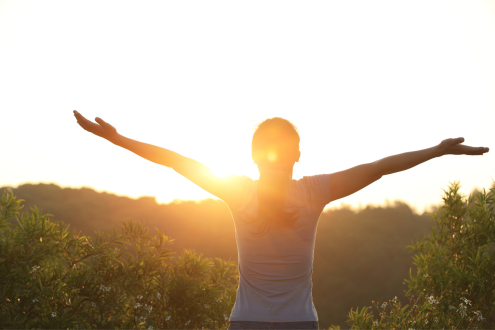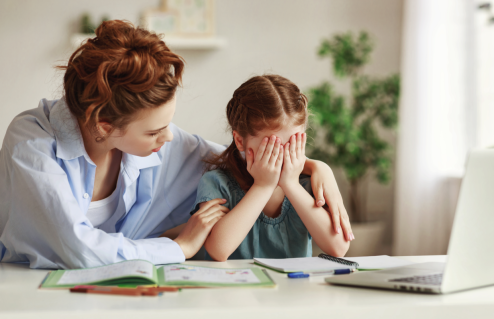Can you hear me? Connecting for mental health
Alice Stone, 17, discovers how connections can have a positive impact on our mental health by attending the Can Anyone Hear Me? conference at the Imperial College London

The importance of connection is not something I had thought about often before I went to ‘Can Anyone Hear Me?’ conference last week. With social media, it’s easy to become disillusioned as to what real connections with people are and can be. But I had no real clue that that this dependency on the ‘highlight reels’ often presented on social media platforms has led to an epidemic of isolation and loneliness. Research shows that our addiction to screens is playing a huge part in our deteriorating mental health. However, after attending the “Can anyone hear me?” conference, the importance of real connections between us and how they can bring us together through our mental health struggles was made very clear by the inspirational speakers.
Lost and alone?
I had to make my first trip to London on my own to get to the “Can anyone hear me?” summit, which was, to begin with, completely overwhelming. London during rush hour is a terrifying prospect to someone who grew up in a leafy village in the middle of practically nowhere England, so naturally a sense of dread washed over me the minute I realized A) I had no idea what the lines on the tube maps even meant and B) I was entirely alone.
It’s strange how even among the busy thrum of purposeful travellers in London you can feel completely and utterly disconnected from it all, which is something I became further overwhelmed by as I tried (and failed) to use Google maps to find the Imperial College, eventually ending up on the phone to a very patient regular London commuter, who helped guide me to the College. I finally found the right building, wondered in through the revolving glass doors like a lost child (which technically, I was) and made my way through to the event, the bright red banners like a beacon of safety. And, thankfully, coffee.
Speaking up
“Can anyone hear me?” is a series of four, one-day summits taking place across 2018, organised by Red Rocket events and formed by a collaboration of young adults and young champions, that centres around rising above and speaking up about the mental health challenges faced by young people today.
The day started with introductions from the event organisers themselves talking about their personal stories, with Jenny Rayner (founder of the Lucy Rayner Foundation) telling the heart-wrenching story of her daughter’s suicide and how she created her foundation in honour of her and Paul McGregor who told of his fathers’ suicide and how he coped.
Throughout the day, connection seemed to be something present in every story the speakers told of mental health, with the young champions from The Anna Freud National Centre for Children and Families highlighting its high importance in young people’s mental health.
One of the young champions put forward the idea that connecting with others by offering support can have a positive impact on our own mental health by stating that ‘there is empowerment in helping others’. Indeed, research shows that by there are health benefits to helping others, often referred to as “helper’s high.” Those who reach out and help others have lower rates of depression, lower mortality rates, higher self-esteem, and greater functional ability than those who do not.
The other young champions, each with their own stories and struggles, also gave more examples of how this empowerment through connection had improved their mental health. I could also see it in action in the encouraging words and smiles they gave each other.
Expert help
Another of the speakers, Charlotta Martinus (founder of Teen Yoga), showed how connections with others can be found in the fun and stress-free setting of a simple yoga class. She told of the observable improvement in the mental health of teenagers who attended her class, showing how connections with our bodies can also have a profound effect on our we feel.
The deputy leader of the Green Party, Amelia Womack, also gave her perspective on the countries mental health epidemic, stating that ‘this isn’t a problem that rests on the shoulders of individuals’ and talked about the importance connection should have in society and why we should be creating robust systems that enable us to reach out and offer support.
I believe that connection is vital to maintaining good mental health, as there is nothing more paralysing than the feeling of feeling completely isolated within your own suffering. Connecting with others allows us to move through this paralysis and gives us the opportunity to get out of our own heads through listening, relating with others based on personal experience and, most importantly, having fun.
Whilst I may not be an expert on mental health, or even have had a major struggle with mental health myself, just from sitting at the back of the conference and listening to others share their stories and viewpoints, it was clear that all these different organisations and young voices had connected with each other. “Can anyone hear me?” had given all these speakers, young voices and young champions the opportunity to answer that question with a resounding ‘yes.’
For more information
http://thelucyraynerfoundation.com/
https://www.greenparty.org.uk/people/deputy-leader-amelia-womack.html
Image: iStock








